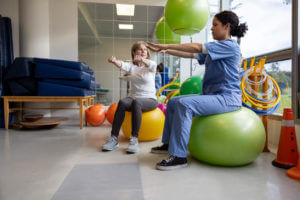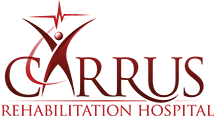
When it comes to overcoming challenges and moving forward in life, two important concepts often come into play: rehabilitation and recovery. Although they may seem similar, they have distinct meanings and implications. Let’s delve deeper into these terms to gain a better understanding.
What is Rehabilitation?
Rehabilitation refers to the process of restoring someone to their previous level of functioning or helping them acquire new skills after experiencing an illness, injury, or disability.
It involves a comprehensive approach that encompasses physical, mental, emotional, and social aspects of a person’s life. Rehabilitation aims to enhance independence, improve quality of life, and promote overall well-being.
Rehabilitation focuses on regaining lost abilities and developing strategies to adapt to new circumstances, such as:
- Recovering from a physical injury
- Managing a chronic condition
- Coping with a mental health issue
This may involve medical treatments, therapy sessions, assistive devices, and lifestyle modifications tailored to individual needs.
The Essence of Recovery
Recovery is a broader concept that goes beyond simply regaining physical or cognitive abilities. Recovery is a personal journey of transformation and growth, involving a holistic approach to healing.
It applies not only to individuals facing health challenges but also to those overcoming addiction, trauma, or any significant setback in life.
Recovery is a deeply personal experience that varies from person to person. It is about:
- Rebuilding one’s life
- Finding meaning and purpose
- Embracing a new sense of self
It involves overcoming obstacles, developing resilience, and cultivating a positive mindset.
Recovery is not just about returning to a previous state; it’s about forging ahead and creating a better future.
The Interplay Between Rehabilitation and Recovery
While rehabilitation primarily focuses on the physical aspects of healing, recovery also encompasses the emotional, psychological, and spiritual dimensions.
Rehabilitation provides the necessary tools and support to regain functional abilities, while recovery enables individuals to rediscover their identity, rebuild relationships, and find hope and inspiration.
Rehabilitation and recovery often go hand in hand, complementing each other in the healing process. Rehabilitation lays the foundation for recovery by addressing immediate needs and providing necessary interventions, while recovery empowers individuals to navigate their journey beyond functional restoration.
What Does Rehabilitation Look Like?
Rehabilitation takes various forms depending on the specific needs and goals of the individual.
Here are some common components and approaches that are often part of the rehabilitation process:
Medical Interventions and Treatments
In many cases, rehabilitation starts with medical interventions to address the underlying condition or injury.
This may involve surgeries, medications, or other medical procedures aimed at stabilizing and improving the person’s health. Medical professionals closely monitor the progress and adjust the treatment plan accordingly.
Physical Therapy
Physical therapy plays a vital role in helping individuals regain mobility, strength, and coordination. Skilled physical therapists design personalized exercise programs that target specific areas of weakness or impairment.
Through exercises, stretches, manual techniques, and the use of specialized equipment, physical therapy aims to improve physical functioning and reduce pain.
Occupational Therapy
Occupational therapy focuses on enhancing a person’s ability to perform daily activities and regain independence.
Occupational therapists work with individuals to develop skills needed for self-care, work, and leisure activities. They may:
- Provide adaptive techniques
- Recommend assistive devices
- Suggest modifications to the environment to promote functional independence
Speech and Language Therapy
For individuals with speech, language, or swallowing difficulties, speech and language therapy is crucial.
Speech therapists assess and address communication challenges, such as articulation disorders, language delays, or aphasia.
They also help individuals with swallowing issues by providing exercises and strategies to improve safety and efficiency while eating and drinking.
Psychological Support
Rehabilitation encompasses not only the physical aspects but also the emotional and psychological well-being of individuals.
Mental health professionals, such as psychologists or counselors, may be involved in the rehabilitation process to help individuals:
- Cope with the emotional impact of their condition
- Manage stress
- Develop strategies for maintaining mental well-being
Assistive Devices and Technology
Rehabilitation often involves the use of assistive devices and technology to compensate for physical limitations or enhance functioning. These can include:
- Mobility aids (e.g., wheelchairs, crutches)
- Adaptive equipment for daily activities
- Communication devices for individuals with speech impairments
- Specialized software and apps for cognitive rehabilitation
Team Approach and Collaborative Care
Rehabilitation typically involves a multidisciplinary team of healthcare professionals working together to provide comprehensive care.
This team may include physicians, nurses, physical therapists, occupational therapists, speech therapists, psychologists, social workers, and other specialists.
The collaborative approach ensures that all aspects of the individual’s health and well-being are addressed effectively.
By combining these components and tailoring them to the individual’s specific needs, rehabilitation aims to optimize recovery and help individuals:
- Regain their independence
- Improve their quality of life
- Reintegrate into their communities
Rehab Near You in Sherman, TX
Understanding the difference between rehabilitation and recovery is crucial for anyone facing challenges or supporting someone on their healing path. By recognizing the distinct aspects of each concept, individuals can approach their journey with a more comprehensive perspective.
Do you need rehab near you in Sherman, TX? If so, look no further than Carrus Health Rehabilitation Hospital. Our highly dedicated and skilled medical providers will make sure you get the kind of care you deserve and need. For questions or concerns, you may reach our friendly staff today at (903) 870-2600. You can call the same number if you want to book an appointment with us.
We look forward to serving you!

